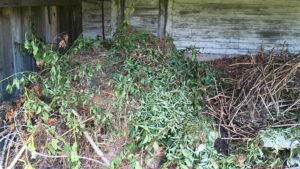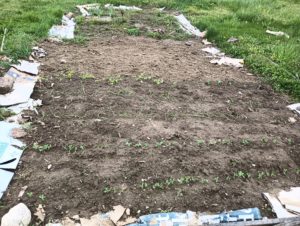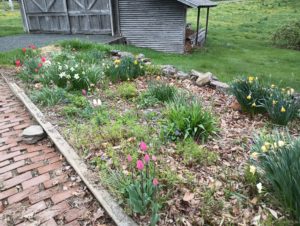Yesterday was my birthday, which once again brought me right up close to the endless bumps in the winding road toward eschewing perfectionism and embracing self-acceptance.
Even though I know it isn’t productive, I can’t quite let go of my little-kid fantasy that my birthday should be a perfect day where everything I do is significant and special. And my inner kid wants this to happen spontaneously, with others taking charge of the orchestration who will magically know exactly what I want them to do. My inner kid, who still thinks I’m seven and my birthday is the most important day of the year, wants to be surrounded by celebrating family and nearby close friends, and flooded with cards or phone calls, or texts, or social media posts from people farther a-field with beautiful heart-rending messages on how much I matter. But I’m sixty years older than seven. Time to be an adult–as I’ve had to be ever since high school, when my birthday often coincided with final exams.
Adults are busy people, and I admit, I’m not someone who makes a big deal about other people’s birthdays, so it’s unreasonable and impractical to think that people should make a big deal over mine. And having taken a deep dive into my struggles with perfectionism, I can now see how all this birthday stress is just another manifestation of how easy it is to make yourself miserable by getting tangled in the morass of unrealistic expectations.
So, here’s what I’ve learned over the years:
(1) If you want something to happen, make it happen. If it involves others, ask them for what you want. I both like surprises and I like to be in control, so I’m very hard to please, but one year I asked my partner, Shel, to take me on a surprise get-away, location unknown. We ended up having a great few days in rural Quebec, with only one big snafu. Shel messed up where he booked our accommodations, so we ended up double-paying when we no-showed at the place we were supposed to be on the first night and surprising the innkeeper when we arrived at the second-night place a day early, but so what! At least they had a room for us.
(2) Make your own specialness. Ultimately, the choice on whether or not to be happy resides with me. Over the years I’ve planned a lot of birthday adventures that were solo, including a two-day silent retreat in a cabin in the woods, and several day-long jaunts to some of the beautiful and spiritually inspiring places within an hour of home. And guess what! These weren’t perfect either–but they were still wonderful, and at least I wasn’t blaming others for their inability to do the impossible and create a totally perfect day.
Yesterday, I did neither of these things. It was a scheduled day to take care of my grandson, and the adult in me said my birthday wasn’t a reason to forsake that responsibility. I wouldn’t say I had a perfect day, but I had a good day. Shel made strawberry crepes with camembert cheese for breakfast–a surprise that I didn’t need to control (LOL).  And when I arrived to take care of Manu, I was greeted by his parents with a strawberry rhubarb pie. (Strawberries are an important birthday theme for me, since it’s strawberry season here in western Mass.)
And when I arrived to take care of Manu, I was greeted by his parents with a strawberry rhubarb pie. (Strawberries are an important birthday theme for me, since it’s strawberry season here in western Mass.)
Manu was delightful and we spent a lot of time listening to wolves on this great short video and doing wolf howls. For the rest of the day I ran errands and did normal stuff, which also felt good. Sometimes normal is what we need. Though it also included answering a lot of social media happy birthday posts, and speaking on the phone with a number of family members and close friends, who had taken the time to call and make me feel special. Afterwards, Shel and I went out to dinner and then to get my free birthday sundae at Herrell’s ice cream to close out a lovely day.
Yet, today, I can’t help but breathe my post-birthday sigh of relief that it’s over. Another bump navigated on this endless road. Hope the path will be easier traveling for a while.
Subscribe at ddinafriedman.substack.com





 Of course, I’m not a bad person, even if I return to find my walkway a snarling mess. Nevertheless, I felt deluged with shame last year when I had to admit defeat with the driveway and call for professional help–the same kind of shame I felt when I first returned to playing the piano and couldn’t get through any of the pieces I wanted to play without a million mistakes. But somewhere in the past three years with piano, in addition to acquiring more dexterity through frequent practicing, I’ve learned to laugh when I mess up, then patiently go over the tricky passages. And then, even if I still can’t play the hard parts perfectly, I tell myself I’ve done well enough for today. And that playing the piece still brought me joy. Like my flower garden, which is NEVER weed-free, but still a pleasing, cultivated chaos.
Of course, I’m not a bad person, even if I return to find my walkway a snarling mess. Nevertheless, I felt deluged with shame last year when I had to admit defeat with the driveway and call for professional help–the same kind of shame I felt when I first returned to playing the piano and couldn’t get through any of the pieces I wanted to play without a million mistakes. But somewhere in the past three years with piano, in addition to acquiring more dexterity through frequent practicing, I’ve learned to laugh when I mess up, then patiently go over the tricky passages. And then, even if I still can’t play the hard parts perfectly, I tell myself I’ve done well enough for today. And that playing the piece still brought me joy. Like my flower garden, which is NEVER weed-free, but still a pleasing, cultivated chaos.



 It’s one of the stories in my forthcoming collection, Immigrants (Creators Press, Fall 2023).
It’s one of the stories in my forthcoming collection, Immigrants (Creators Press, Fall 2023).